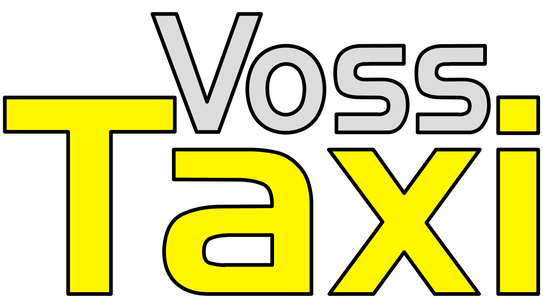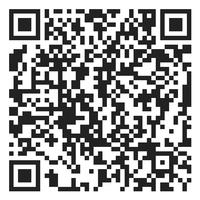Transport Conditions
Prepared by the Norwegian Taxi Association 2000 § 1 Application of the transport conditions The transport terms are contract terms between the traveler and the taxi driver. Norwegian law applies to all matters that are not regulated here. § 2 Ordering a taxi When ordering a taxi through a central office or when ordering a telephone directly to a stop, the orderer must provide relevant information that may be necessary for the execution of the assignment. If a specially equipped vehicle, extended seating capacity or special equipment (special transport) is required, the customer must state this. If the order applies e.g. more than four passengers and it turns out that the actual need is reduced, compensation and the like are calculated according to the order. § 3 Use of stopping place. Preference for taxis. In the event of a queue at a stop, the taxi driver must drive the traveling passenger. Sick, disabled and people with small children have priority for taxis. In other respects, the provisions laid down by the authorities on preferential rights to taxis apply. Travelers from the bus stop are entitled to a free taxi. The public at the stop is referred to the first available taxi, but they themselves have the right to choose a taxi. Taxis that may be at the front of the queue must, if necessary, be moved to make room for exit. Upon boarding, the traveler must state his or her destination, about any form of settlement other than cash payment and any other matters of significance to the performance of the assignment
§ 4 Praiing outside the stop. When the taxi is available, the taxi driver must make sure that the available light is on and visible to the public. Outside a distance from the nearest stop, specified in the switchboard's driving regulations / driver instructions, the driver can pick up passengers who give clear signs, so true stopping and boarding can take place within the framework of current traffic rules and without obstruction to other traffic. § 5 Taxi driver's right to refuse trips Taxi drivers can reject an intoxicated person, travelers who act threateningly or people who for other reasons the taxi driver finds objective reason to reject. The traveler has the right to bring a guide dog. If a person is rejected, the taxi driver can claim compensation in accordance with the taximeter's denomination. 6 Execution of the assignment A taxi driver must follow the route that takes the shortest time to the destination, unless the passenger decides otherwise. Upon request, the taxi driver is obliged to drive passengers to different places on the same trip (combination of trip). Unless otherwise agreed, the last disembarking passenger is responsible for paying for the trip Responsibility for mandatory use of seat belts and, if applicable, that a child seat is securely fastened, follows the provisions of the Road Traffic Act. A person who needs assistance from a taxi to the front door or similar, can request assistance. Assistance taxi drivers provide the passenger, at his request, to, from or outside the means of transport at the passenger's risk.
During the trip, the driver and passengers must act so that there is no danger to fellow road users, luggage, car and equipment. Smoking in taxis is prohibited. The driver's use of a mobile phone, computer terminal and the like during assignments must take place in accordance with the exchange's regulations. Car radio can be used with the traveler's consent. Taxi drivers may require advance payment for the trip. § 7 Waiting time, interruptions and delays When picking up passengers and while driving, the taxi driver is obliged to wait for a time interval stated in the driving regulations / driver instructions, unless otherwise agreed. For special driving assignments of the type medical driving, wedding, christening and funeral, waiting time of the nature of the assignment follows. In the case of a pre-booked taxi, the actual attendance may deviate from the agreed time of attendance with a time interval specified in the exchange's driving regulations / driver instructions. If a trip has to be canceled due to a fault with the vehicle, the taxi driver is not entitled to payment for the service performed, if he cannot obtain another taxi within a reasonable time. If a new taxi is obtained, the taxi driver can demand payment for what he has driven, less the attendance price of the new taxi. If the passenger does not want another taxi, the taxi driver is entitled to payment for the ride performed. In the event of cancellation of a trip due to weather and / or driving conditions, the taxi driver is entitled to payment for the distance traveled. Delays due to traffic and meteorological conditions do not give the traveler the right to a reduction in the overall fare.
8 Payment, exchange and receipt The taxi centre's tariff regulations are used as a basis for the tariff calculation, unless otherwise agreed. Taxi rides must be paid for in cash. When using a credit card, requisition or other form of payment, an agreement must be made with the taxi driver before the start of the trip. If it appears through signs in the taxi, the switchboard's advertising or the like that certain requisitions, payment / credit cards are accepted, the taxi driver is obliged to accept these. Taxi drivers are not obliged to exchange larger banknote amounts than specified in the exchange's driving regulations / driver instructions. Driving in connection with the exchange of larger amounts, is charged to passengers. The taxi driver is obliged on request to give the passenger a dated receipt. The receipt must state the taxi driver's name, the taxi's license number, the passenger's place of boarding and disembarkation and other information that is necessary to check that the consideration has been calculated in accordance with the applicable fare regulations. In taxis with a receipt-writing taximeter, this must be used when printing a receipt. § 9 Security for payment The taxi driver shall as soon as possible and within 24 - twenty-four - hours notify the taxi center of objects received as security for payment. Public documents such as passports and driver's licenses are not accepted as mortgages. The taxi driver is obliged to give the passenger a receipt on the exchange's approved form for the deposit received. The mortgage receipt must bear the driving route, driving amount, fee, time and place of return of the mortgage. Debt securities, approved by the taxi center, can be used as an alternative to a mortgage in connection with security for payment. § 10 Baggage and the like The taxi driver will help to place luggage and other things in the taxi. The driver can reject luggage and other items that, according to their scope or design, are not suitable to be transported in the taxi. If the traveler wishes to bring luggage beyond what can normally be expected to be included in an ordinary taxi, this must be stated to the exchange when ordering. If possible, the exchange can then convey the assignment to a taxi adapted to the nature of the assignment.
§ 11 Lost property After each turn, the taxi driver must immediately check whether anything has been forgotten in the taxi, so that forgotten cases can be returned to the right person immediately. If this is not possible, the driver must deliver objects forgotten in the taxi at the location designated by the exchange within 24 hours. He is obliged to take proper care of the object. § 12 Liability a) Injury to person The carrier's liability for damage to a person during transport is further regulated in the Car Liability Act. The carrier shall have insurance in accordance with the requirements laid down by law. b) Luggage and other goods If hand luggage or items carried by the passengers are completely or partially lost, or if such items are damaged during the journey, the carrier is obliged to compensate the loss or damage, if the loss or damage is due to errors or negligence on the part of the carrier. For damage to and / or loss of luggage or other things the passenger brings, the carrier's liability is limited to NOK. 60, - pr. kg. of the part of the goods that has been lost or damaged. c) Delay The obligation to pay compensation for delay arises when attendance or the time to complete the assignment exceeds what must be considered reasonable in the circumstances. Liability does not exist if the delay is due to the passenger or circumstances that the taxi driver could not avoid and if the consequences he could not prevent. The carrier's liability for delays is limited to the costs of transport. d) The responsibility of the traveler The traveler is obliged to compensate for damage caused to the carrier by intent or negligence. § 13 Rules in disputes Disputes between the traveler and the taxi driver that cannot be resolved between the parties, the traveler can submit to the exchange.
§ 14 Complaints, deadlines and limitation Anyone who wants to claim compensation for loss must give the carrier and / or the exchange where the carrier is connected, notification without undue delay. Claims for compensation under these transport statutes become statute-barred after one year unless other deadlines are to be applied pursuant to other legislation. § 15 Information The transport conditions, together with the current fare regulations, must be available in the taxi and presented to the traveler on request.

